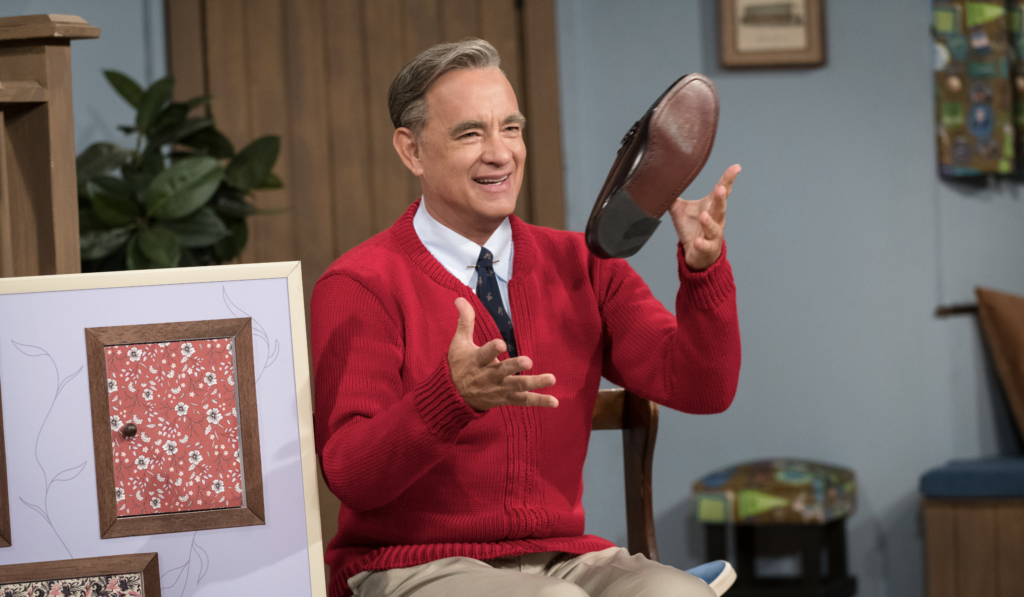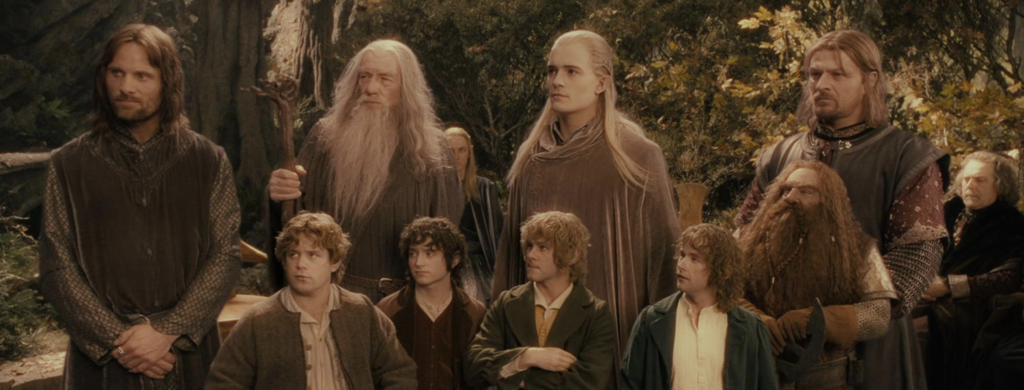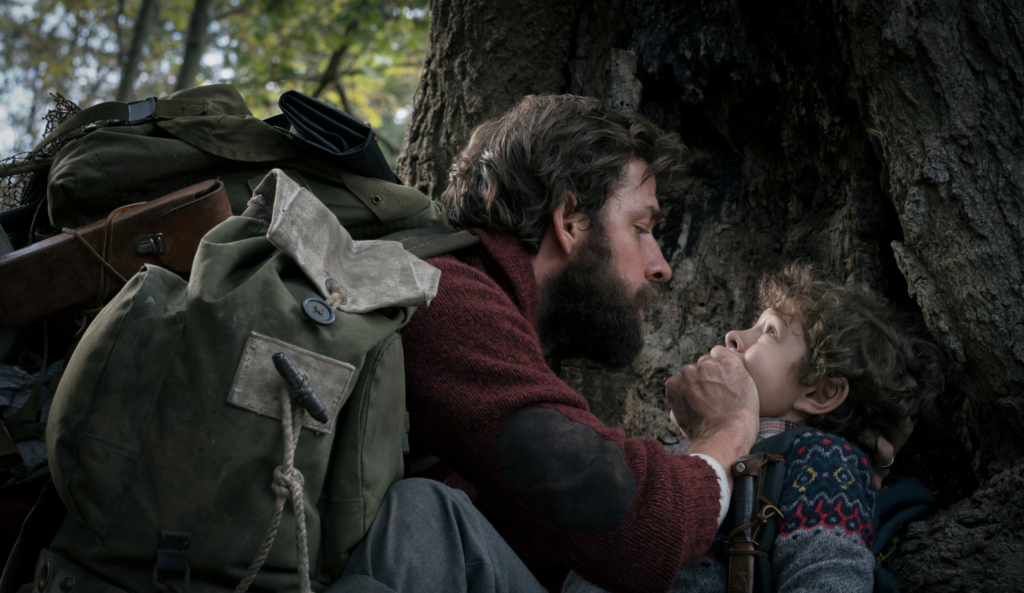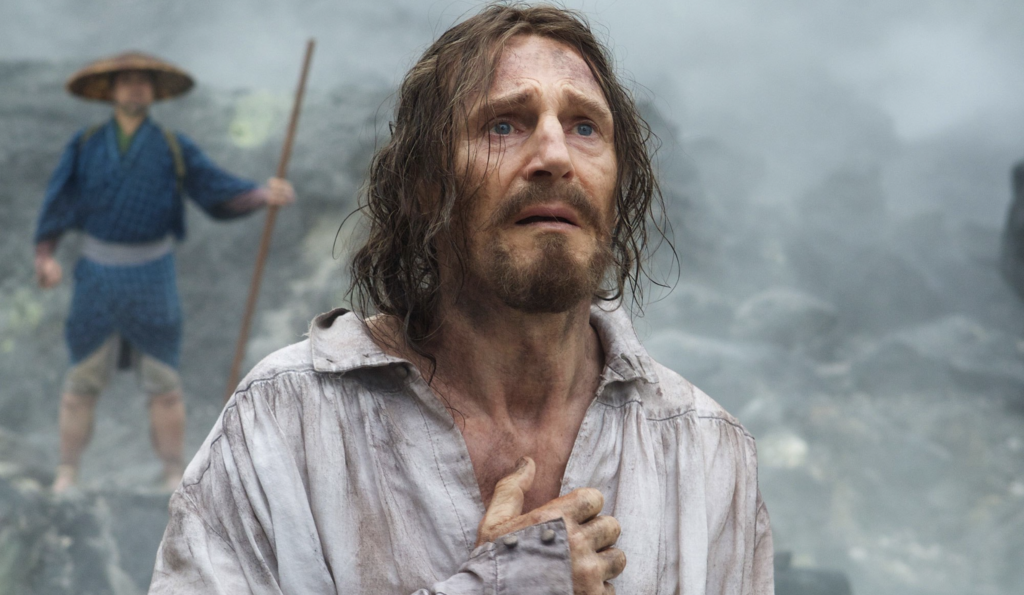Life is full of questions—some big, some small. Why are we here? Can you cry underwater? Why does Goofy wear clothes and Pluto does not when they’re both, obviously, dogs?
Also, what is a Christian movie?
You’d think that someone like me—a Christian movie reviewer—would know the answer to that question. But the more movies I watch, the more I wonder. Some movies made by Christians for Christians contain less explicit Christian content than movies made by secular moviemakers for secular movie audiences. Some secular films can be strikingly thoughtful, and filled with unexpected Christian values. The 1964 film The Gospel According to St. Matthew was helmed by an atheist/Marxist/homosexual (Pier Paolo Pasolini), and yet many consider it to be the most moving, devout film about Jesus ever made.
We think we know a Christian movie when we see it. And that is true, to a point. When we annually select films for our Best Christian Movie category during the Plugged In Movie Awards, we tend to restrict our choices to films made specifically by and for Christians—movies that might inspire or edify, movies that are marketed directly to believers. They’re often backed by Christian production houses or faith-based branches of secular studios.
But I’ve found that movies made outside the Christian moviemaking realm can be just as spiritually powerful or resonant. Some secular films can tell explicitly Christian stories or stories with an underlying spiritual subtext. Others might not have wanted to make a spiritual statement at all. Yet, because of our own experiences and God-given wiring, we might see one anyway. I found enough spirituality in Christopher Nolan’s Dark Knight movies to write a whole book about them—which I bet Nolan would be surprised by.
With all that in mind, I’ve tried to compile a list of movies with Christian values that have inspired, moved or challenged me over the years, and ones that I think might move some of you, too. Some are big blockbusters. Others are films you might’ve never heard of. And I’m pulling from a wide variety of genres, hoping that at least one film in this list might strike your fancy.
But be warned: While we at Plugged In tend to concentrate on telling folks what might be right for their families, some of these films aren’t necessarily fit for the juicebox set. Many are made for adults—asking heavy questions, dealing with sometimes difficult Christian themes and, occasionally, featuring some heavier content concerns. Be sure, as always, to read our reviews to decide whether or not a film is right for you and yours.
But let’s start with a bit of a softball.

A Beautiful Day in the Neighborhood (PG, 2020)
This film is about one of the nicest, kindest people the world has ever known: Mister Rogers. Starring Tom Hanks as Rogers and Matthew Rhys as the jaded reporter forced to write a story about him, A Beautiful Day gives us insight as to what made this kids’ show host so special: The answer? A deep faith (which the movie acknowledges and sometimes shows) and an uncanny willingness to engage with those around him.
Rogers doesn’t just listen: He listens. He doesn’t just care. He cares. He doesn’t preach; he embodies the Christian values that are so important to him. And in so doing, we can see in him maybe a hint of Jesus—talking with the woman at the well as if He’d known her forever (and He had), speaking with sinners with heartbreaking compassion. The movie suggests that when Mister Rogers talked with someone—whether it was a head of state or a 6-year-old boy—that someone was the most important person to Rogers in that moment. And you know what? He was. That posture is one that all Christians are called to, and one that we often fall short of.

Gravity (PG-13, 2013)
This acclaimed sci-fi drama features just two tiny humans and the beautiful, cold, vastness of space. And it is, in its own way, a story about life after death.
Dr. Ryan Stone (Sandra Bullock) is dead when the movie begins—or might as well be. The astronaut is grieving the loss of her daughter, and she’s brittle. Fatalistic. When things go wrong in orbit, her mind turns toward not only the hopelessness of her situation but the faith she never had. “I never said a prayer in my life,” she says. “Nobody ever taught me how.” She’ll die up there, she believes, and no one will care … a blip of breath, taken and gone. But then, something happens that shakes her non-faith—something that gives her the strength and courage to live.
This is not an explicitly spiritual movie. You don’t need to be Christian to appreciate either its gripping drama or its hopeful message. But when I watched Gravity, it reminded me that we, like Ryan, float in a hostile world—one that can often feel cold and empty and hopeless. Even Christians can be plagued with doubt and despair. But even in the most hostile places, even in times when we feel like empty jars in an empty house, there is hope—hope of love and life and transcendence. And if we just let God fill that emptiness, we can find it.

A Hidden Life (PG-13, 2019)
Director Terrence Malick isn’t everyone’s cup of tea. His work tends to be dreamy, experiential—filled with haunting images and introspective monologues, but often short on a strong, cohesive narrative. But Malick almost always brings some serious Christian themes to his films, and The Hidden Life may be among his most accessible and spiritual.
The film is a straight-up biopic of Franz Jägerstätter, an Austrian farmer who refused to go to war for Adolph Hitler because of his Christian faith and Christian values. “If God gives us free will, we’re responsible for what we do, what we fail to do, aren’t we?” he asks the local bishop. Franz’s principled stance puts him at odds with the town’s fascist mayor. He and his family become local pariahs, but he refuses to relent. And the film posits a question that we Christians should ask of ourselves sometimes. What does it mean to follow God? And are we prepared to pay the price?
For those who dig this film, a next step might be The Tree of Life—Malick’s Oscar-nominated work that shows the director at his weirdest … and most profound.

Iron Man (PG-13, 2008)
Yes, that’s right—a superhero movie. The Marvel Cinematic Universe has waded into spiritual waters plenty, in fact. Often, those waters can get a bit murky. But Iron Man was surprisingly resonant for me; not because the hero was particularly good, but because he wasn’t.
When we meet Tony Stark, he’s as selfish as they come. Noted drinker, womanizer and all-around hedonist, he turns a corner after he suffers a grievous chest wound and gets kidnapped by a terrorist who wants the guy to build him a powerful weapon. Instead, Tony escapes in his first makeshift Iron Man suit.
Now, let’s take a look at that suit for a minute, shall we? It has jets on its hands and feet, right where we’d find nails in most depictions of Jesus’ crucifixion. The engine that powers it all also keeps Tony alive—preventing shrapnel from sinking into his heart. You could say that Tony has a new heart, and with it a new outlook on life. “I shouldn’t be alive, unless it’s for a reason,” he says.
Tony’s not at all perfect: Subsequent movies make that quite clear. But in him, I see echoes of what happens to we imperfect souls when we accept Jesus and move in a better trajectory. Just as Tony gets a new heart, our souls are wiped clean when we place our faith in Christ. We’re asked to sublimate our own selfish desires for something better and greater than we are, as Tony tries to do. We’re called to follow Christ, to the cross if need be, sacrificing ourselves for God and others. And, if you’ve followed Tony’s saga to the end, we know that Tony sacrificed a lot himself.

The Lord of the Rings (PG-13, 2001-2003)
Yes, I’m cheating a bit by including all three films in this trilogy. But J.R.R. Tolkien considered his sprawling trilogy about Third-Age Middle Earth to be one big book, so let’s take the movies as such, as well. It’s all the easier to see the book’s deeply spiritual themes.
The Lord of the Rings never mentions God or Jesus, but Tolkien has left plenty of covert spiritual hints about his intent. He writes that Sauron falls on March 25—Easter in Old English tradition. The showdown between Gandalf and the Balrog in The Fellowship of the Ring (as I talk about in my book Burning Bush 2.0) is a clash between not just a wizard and a monster, but between a servant of light and a creature of hell. You could argue that the tale contains not one, but three Christ figures: Gandalf, who dies and lives again; Aragorn, the exiled and now returning king; and lowly Frodo, who carries a terrific burden not of his own making and sacrifices himself to deal with it.
And that burden, the One Ring of Power, is a grand illustration of what pride and sin does to us, taking even our best attributes and twisting them into something far more sinister.
But what is perhaps most resonant for me is Gollum’s role in the story—how even something as small and mean and evil could be used for a greater, divine purpose. “There are other forces at work in this world, Frodo, besides the will of evil,” Gandalf tells Frodo in Fellowship. And that (to paraphrase Gandalf again) is a comforting thought.

A Quiet Place (PG-13, 2018)
Let’s move from high fantasy to horror—one of moviedom’s most problematic and, paradoxically, spiritually resonant genres. We’ll stay away from horror flicks that take an explicitly supernatural tack, though.
The aliens in A Quiet Place have remarkable hearing and even more remarkable appetites. The Abbot family—Mom, Dad and two kids, one of whom is deaf—are doing their best to live life as quietly as possible, because in this future, noise equals death. But another child is on the way, and babies are not known for being quiet.
Again, there’s not a lot of overt spirituality in A Quiet Place, though the family does pray before meals. But underneath, we find plenty of faithful undercurrents. I go into some in greater detail elsewhere, but here, let’s just marvel at the Abbots’ willingness to bring a child into the world under such adverse conditions—risking their very lives to do so. That’s a pretty strong pro-life statement, really. And when that baby does come, they put it in a soundproof box for safekeeping, which floats on the waters of a flooded basement … an echo of Moses on the Nile in another precarious world.

Silence (R, 2017)
Director Martin Scorsese has said that he was influenced greatly by two seemingly disparate elements as a child: film and faith. He’s become a master of the former and, believe it or not, often brings the latter into his work. And Silence might be his most overt spiritual statement.
Based on a book by Shūsaku Endō, an acclaimed Catholic Japanese novelist, Silence follows two Jesuit priests in 17th-century Japan as they try to track down a former teacher of theirs, who has supposedly turned his back on God (in the face of vicious and often lethal persecution). One of those priests, Father Rodrigues, is not frightened by persecution: He’s willing, even eager, to die for his Lord. But the authorities don’t want his blood: They want him to recant, too. And they eventually ask him to make a horrible choice.
I’ve said that Silence is perhaps the film that has challenged me the most. In Christendom, we’re used to stories such as The Hidden Life, where people stand proudly by God in the face of torture and death. But Silence puts the screws to those stories and gives it a twist or two, forcing you to ask difficult, even troubling questions. It doesn’t challenge the reality and sovereignty of God or Christian values, but it does ask what it means to follow Him. It even dares wonder whether faith itself can become an idol. This is a hard movie, in both content and theology. But the questions it asks are worth grappling over.
This list could go on. I’ve thought about writing a year’s worth of movies with Christian values, unpacking a movie a week. And even then, we might need a decade to cover all that might have worthy Christian themes. But for now, we’ll keep the list at seven. And perhaps we’ll suggest a few more down the road.







7 Responses
-Interesting but great picks Paul! Adds some spiritual perspective to each! (Sounds like I’ll have to read your books sometime!) I would also add “Signs” in there as that was a secular thriller that also discussed faith. (And even implies that there are “signs” in life that come from God).
-I mean… if your definition of “Christian movie” is (as stated) a film made “by and for” Christians, then at least A Hidden Life counts as “Christian”.
But the common (OED) definition of “secular” is “Not connected with religious or spiritual matters.” LOTR, Silence, and A Hidden Life are all NOT that.
-Keep writing your year’s worth! It’s great to read your thoughts. May God bless your writing and career, it is making a difference out here in the world.
-Agreed. I wouldn’t consider “A Beautiful Day in the Neighboorhood” (excellent film but VERY intense and I wouldn’t recommend it for young audiences) or “Silence” to be secular films.
My favorite secular film that glamorized Christian values would have to be “Kiki’s Delivery Service” because of the beautiful way the protagonist treats others and learns to be a mature, compassionate adult.
-What was your take on “The Matrix”?
-Despite the religious symbolisms (which I thought were more pretentious in hindsight than profound), they usually condemn the stylized violence, which is totally understandable.
-Good list. I’d add Les Miserables. I prefer the Liam Neeson version, but the Hugh Jackman one has a great final scene straight out of Hebrews 12